
Our place to honor those actors, actresses and the many people behind the camera that have passed in 2023.
December 30th – Cindy Morgan (1951-2033)
December 30th – Tom Wilkinson (1948-2033)
December 11th – Andre Braugher (1962-2033)
December 8th – Ryan O’Neal (1941-2033)
November 19th – Joss Ackland (1928-2023)
October 28th – Matthew Perry (1969-2023)
October 24th – Richard Roundtree (1942-2023)
October 18th – Burt Young (1940-2023)
October 14th – Piper Laurie (1932-2023)
August 7th – William Friedkin (1935-2023)
July 31st – Paul Reubens (1952-2023)
June 30th – Alan Arkin (1934-2023)
June 27th – Julian Sands (1958-2023)
June 23rd – Frederic Forrest (1936-2023)
June 15th – Glenda Jackson (1936-2023)
June 12th – Treat Williams (1951-2023)
May 21st – Ray Stevenson (1964-2023)
May 19th – Jim Brown (1936-2023)
April 8th – Harry Belafonte (1927-2023)
April 8th – Michael Lerner (1941-2023)
March 17th – Lance Reddick (1962-2023)
March 9th – Robert Blake (1933-2023)
March 3rd – Tom Sizemore (1961-2023)
February 19th – Richard Belzer (1944-2023)
February 17th – Stella Stevens (1940-2023)
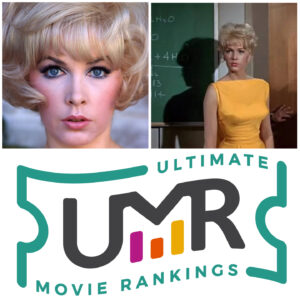
https://www.ultimatemovierankings.com/stella-stevens-movies/
February 15th – Raquel Welch (1940-2023)
February 10th – Hugh Hudson (1936-2023)
January 9th – Melinda Dillon (1939-2023) – Announced Feb. 3rd
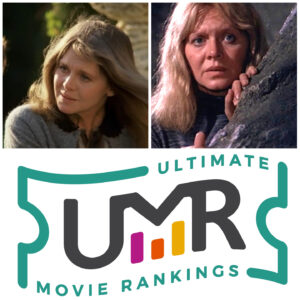
https://www.ultimatemovierankings.com/melinda-dillon-movies/







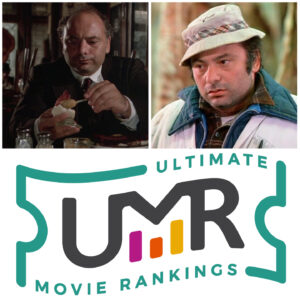









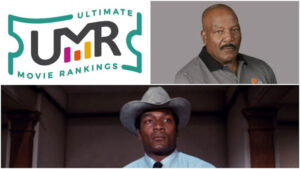

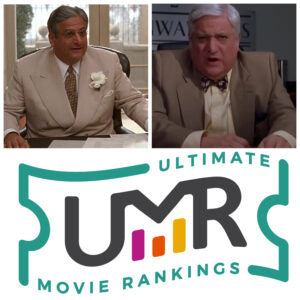

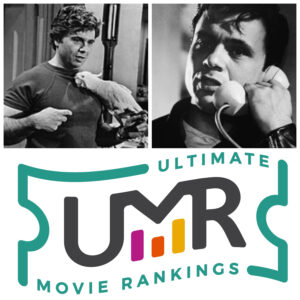


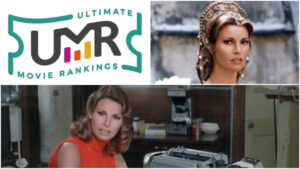

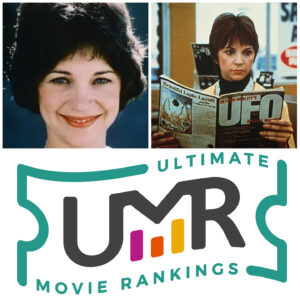

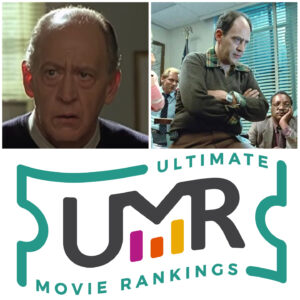
Norman Jewison, ‘Moonstruck’ and ‘In the Heat of the Night’ Director, Dies at 97
By Carmel Dagan
Oscar-nominated film director and producer Norman Jewison, who steered the 1967 racial drama “In the Heat of the Night” to a best picture Oscar and also helmed such popular films as “Moonstruck,” “The Russians Are Coming, the Russians Are Coming” and “The Thomas Crown Affair,” as well as film musicals “Fiddler on the Roof” and “Jesus Christ Superstar,” died Saturday at his Los Angeles residence. He was 97.
His film career began with fluffy Doris Day comedies like “The Thrill of It All.” But Jewison’s social conscience began to surface with “In the Heat of the Night” and, later, the labor union drama “F.I.S.T.” and other films focusing on racial tensions such as “A Soldier’s Story” and “The Landlord” (the latter of which he only produced), though he never abandoned comedies and romances.
In 1961, after successes in British, Canadian and American TV, he was chafing at the restrictions of television and moved to Hollywood to pursue a film career. His first effort was the comedy “40 Pounds of Trouble,” starring Tony Curtis. In the wake of its box office success, Universal signed Jewison to a seven-year contract. His next film was even bigger. “The Thrill of It All” starred the studio’s reigning queen, Doris Day, as did Jewison’s follow-up, 1964’s “Send Me No Flowers.”
As his film career blossomed, Jewison didn’t completely abandon television: He served as exec producer on Judy Garland’s weekly variety show.
After finishing “The Art of Love,” with James Garner, Jewison eased himself out of the Universal contract and made his first drama: Steve McQueen star vehicle “The Cincinnati Kid,” taking over from Sam Peckinpah.
His first signature success was the 1966 comedy “The Russians Are Coming, the Russians Are Coming,” with Alan Arkin. Jewison also produced the popular film, breezy and yet with a message of tolerance; it was Oscar-nominated for best picture.
Jewison’s next film, “In the Heat of the Night,” won best picture in 1967, and he drew an Oscar nomination for directing it. Rod Steiger, playing a racist Southern sheriff, won the best actor Oscar, and Sidney Poitier created the memorable Virgil Tibbs. The film later became a popular TV series with Carroll O’Connor, and Poitier revisited his role in other films.
Jewison again worked with McQueen and rising star Faye Dunaway in the visually complex romantic caper film “The Thomas Crown Affair” — a big hit. His 1969 period comedy “Gaily, Gaily,” based on the early life of Ben Hecht, was not well received by audiences or critics.
Spending $9 million on the film version of the legendary Broadway musical “Fiddler on the Roof” paid off handsomely. Audiences loved it and the film was nominated for best picture and director. He next mounted an adaptation of the rock musical “Jesus Christ Superstar,” which was almost as popular.
Having developed a relationship with United Artists, Jewison also began producing films including Hal Ashby’s debut feature “The Landlord” and Ted Kotcheff’s Western “Billy Two Hats.”
His next film, 1975’s dystopian actioner “Rollerball,” starring James Caan, performed modestly. His attempt to get audiences to take Sylvester Stallone seriously in 1978’s “F.I.S.T.” as a Jimmy Hoffa-style labor organizer, however, was doomed.
Jewison bounced back in 1979 with the dark comedy “…And Justice for All,” starring Al Pacino, and also did well with the Burt-Reynolds Goldie Hawn comedy “Best Friends.” His production of “Iceman” for director Fred Schepisi did not ignite, but Jewison’s adaptation of the tense racial thriller “A Soldier’s Story” scored both with critics and audiences; he picked up another Oscar nod as one of the producers of the film, which was nominated for best picture. He tried a stage-to screen-vehicle again, 1985’s “Agnes of God,” with a starry cast including Jane Fonda and Anne Bancroft.
Perhaps the biggest commercial and critical favorite of Jewison’s career was 1987’s “Moonstruck,” which won acting Oscars for Cher and Olympia Dukakis and launched the career of a young Nicolas Cage. The film was a major revenue producer for the ailing MGM and Jewison drew nominations for best picture and director.
His busy career continued with 1989 drama “In Country,” with Bruce Willis; 1991’s “Other People’s Money,” with Danny DeVito; “Only You,” starring Robert Downey Jr.; and “Bogus,” with Whoopi Goldberg, in 1996, but he scored again in 1999 with “The Hurricane,” the inspirational true story of boxer Rubin “Hurricane” Carter, a man unfairly accused of murder. Denzel Washington drew a best actor Oscar nom for his performance in the title role. Jewison and other producers were nominated for a Producers Guild Award.
Jewison was still doing TV work as well. He contributed a short film to the 1994 series “Picture Windows,” in which noted directors each brought a famous painting to life; helmed the TV documentary “Comedy in the 20th Century: Funny Is Money”; and directed and exec produced a 2001 HBO adaptation of the Donald Margulies play “Dinner With Friends” that was Emmy nominated for outstanding TV movie.
Jewison’s last theatrical effort, 2003’s “The Statement,” starred Michael Caine in the story of a Nazi war criminal finally hunted down after years of protection.
With a home base in Toronto, and homes in Los Angeles and London, Jewison founded and co-chaired the Canadian Center for Advanced Film Studies.
Norman F. Jewison was born in Toronto on July 21, 1926. The son of a dry goods store owner, he later attended the Malvern Collegiate Institute and Victoria College at the University of Toronto, with a stint in the Royal Canadian Navy in between.
He gained his first entertainment experience in London as a writer for children’s shows and bit part actor at the BBC. After two years of training, he was admitted to the Canadian Broadcasting Co.’s training program. He soon became a director and producer of major variety programs such as “The Big Revue, Wayne and Shuster,” “Showtime” and “Barris Beat
Jewison’s success in Canadian television led to a three-year contract with CBS in New York in 1958. His first mission was to revive pop song show “Your Hit Parade.” That mission accomplished, he directed “The Andy Williams Show” and several specials including “Tonight With Belafonte,” as well as variety shows headlining Danny Kaye, Judy Garland and Jackie Gleason. In 1960 he won an Emmy for his staging of musical tribute “The Fabulous Fifties.”
His autobiography “This Terrible Business Has Been Good to Me” was published in 2004. Jewison also received the Directors Guild’s lifetime achievement award in 2010.
His first wife, Margaret Ann Dixon, died in 2004. Jewison married again in 2010. He is survived by his second wife, Lynne St. David, and his children, Kevin, Michael and Jenny, and his grandchildren Ella, Megan, Alexandra, Sam and Henry.
Hey Dan. Thanks for the information on Norman Jewison. I will have to get the 2024 In Memorium page up and running. Good information on Mr. Jewison. His total directed seems to be on the low side. Rest in Peace Mr. Jewison.
Glynis Johns, # 438 on the original Oracle of Bacon list in 2000 has passed at 100.
From The Hollywood Reporter:
Glynis Johns, Who Played Mrs. Banks in ‘Mary Poppins,’ Dies at 100
Story by Mike Barnes •
Glynis Johns, the upbeat leading lady with the British charm who starred as the spirited feminist mother Winifred Banks in Mary Poppins, has died. She was 100.
Johns lived in West Hollywood and died Thursday of natural causes at an assisted living facility in the area, her manager, Mitch Clem, told The Hollywood Reporter.
A multitalented actress, dancer, pianist and singer, Johns earned a best supporting actress Oscar nomination for playing the widowed saloon and hotel owner Mrs. Firth in Fred Zinneann’s Australia-set The Sundowners (1960).
Plus, she memorably sang “Send in the Clowns,” which Stephen Sondheim wrote just for her, in her Tony Award-winning performance as Desiree Armfeldt in the original 1973 production of A Little Night Music.
The husky voiced Johns was nominated for a Golden Globe for portraying a daffy older socialite who is stirred by the young stud she meets on the beach in a then-controversial film about sex, The Chapman Report (1962).
A year later, she starred in her own short-lived CBS sitcom, Glynis, in which she played a mystery writer and amateur sleuth, and later, she was Lady Penelope Peasoup opposite Rudy Vallee as Lord Marmaduke Ffogg on the last season of ABC’s Batman.
Walt Disney himself loved Johns’ sparkling onscreen persona and recruited her to play Mrs. Banks, who needs a nanny (Julie Andrews) to take care of her two children, in Mary Poppins (1964). In the film, she memorable performs the song “Sister Suffragette.”
Of Welsh heritage, Johns – whose father was Mervyn Johns (best known as the fearful Bob Cratchit in 1951’s A Christmas Carol) – made her early movie mark in light British fantasies. In Miranda (1948), Helter Skelter (1949) and Mad About Men (1954), she played a flirtatious mermaid who gets involved with real-life romances.
On the strength of her popularity, she ventured to Hollywood, where she portrayed Mary Tudor in The Sword and the Rose and the wife of a Scottish freedom fighter in Rob Roy: The Highland Rogue, two Disney films that also starred Richard Todd and were released in 1953.
She also played Maid Jean, Danny Kaye’s love interest, in The Court Jester (1955), also starring Angela Lansbury and Basil Rathbone.
Glynis Johns was born Oct. 5, 1923, in Pretoria, South Africa. Her mother was concert pianist Alys Steele, who gave birth to her daughter when she was on tour.
After collecting more than two dozen gold medals for dance competitions throughout England and a degree to teach ballet by age 10, Johns made her movie debut in England at age 13 in South Riding (1938), a country drama that starred Ralph Richardson. She later gained recognition for playing the title role in Peter Pan onstage at just 19.
In 1944, she appeared with her father as his daughter in The Halfway House, and they also worked together in The Magic Box (1951) and The Sundowners.
She made her Broadway debut in 1952 in Gertie; starred opposite Charles Laughton in a 1956 revival of George Bernard Shaw’s Major Barbara; and appeared with Rex Harrison in a revival of W. Somerset Maugham’s The Circle in 1989.
Johns also played Desiree’s mother in several A Little Night Music revivals.
From 1988-89, Johns portrayed a senior citizen living in an Arizona retirement community (and the wife of onetime Mr. Ed star Alan Young) in the CBS sitcom Coming of Age. More recently, she stood out as a sprightly grandmother in Denis Leary’s The Ref (1994) and had similar roles in While You Were Sleeping (1995) and Superstar (1999).
Married four times, Johns had one son, the late actor Gareth Forwood, during her marriage to Anthony Forwood. She has no survivors, Clem said.
When asked by KABC-TV entertainment reporter George Pennacchio in October what it was like to turn 100, she replied: “It doesn’t make any difference to me. I’ve looked good at every age.”
I hope that Bruce does a page on her.
Glynis Johns has died at the age of 100. Her films include The Court Jester and the original Mary Poppins. Younger audiences know her from The Ref. Rest in peace.
Joss Ackland, the # 61 ranked actor on the first Oracle of Bacon top 1000 of 2023 has passed.
From Variety
Joss Ackland, the veteran British stage and screen actor who was known for starring in “White Mischief” and “Lethal Weapon 2,” died on Sunday. He was 95.
“Joss was a long term client and great friend who remained lucid, erudite and mischievous to the very end, he died peacefully with his family this morning,” said his rep, Paul Pearson.
In Richard Donner’s “Lethal Weapon 2,” his villainous diplomat character notably utters the line “Diplomatic immunity!” before being shot by cop Roger Murtaugh, played by Danny Glover.
With over 130 film and television credits, Ackland appeared in a wide range of projects, including “K-19: The Widowmaker,” “Bill & Ted” and “The Hunt for Red October,” where he starred alongside Sean Connery and Alec Baldwin. His television work includes “Shadowlands,” where he played C.S. Lewis, and “Midsomer Murders.”
Ackland was made a CBE for services to drama in 2001. He earned two BAFTA nominations over the course of his career: one for best actor for the TV movie “First and Last,” and the other for supporting actor for “White Mischief.”
His acting career was not limited to the screen. He starred in several stage productions as well, alongside those such as Dame Maggie Smith, Dame Judi Dench and Tom Courtenay. Some of his most notable stage credits include portraying Juan Peron in “Evita” and starring opposite Hermione Gingold in “A Little Night Music.”
The actor was born in 1928 in the Ladbroke Grove area of London, but grew up in Kilburn, north London. Ackland attended London’s Central School of Speech and Drama, making his professional stage debut at 17 in the 1945 production of “The Hasty Heart.” He joined a variety of regional theater troupes to develop his acting skills and eventually joined London’s Old Vic.
Ackland was married to his wife Rosemary for 51 years before she died in 2002.
He is survived by his seven children, 34 grandchildren and 30 great grandchildren.
Thanks Dan. Working on a page on him. Only had 4 movies attached to him in our database…but that number is now at 16. Rest in Peace Mr. Ackland.